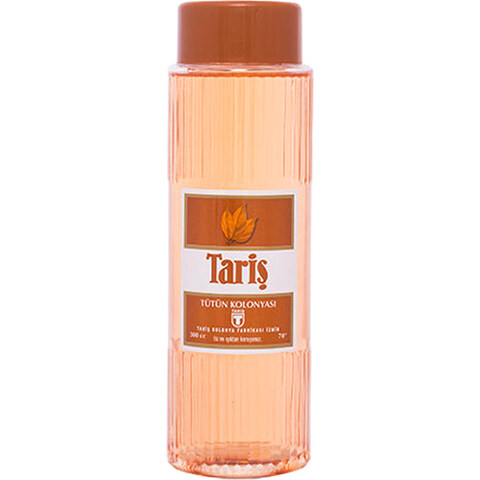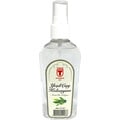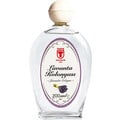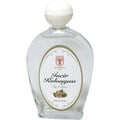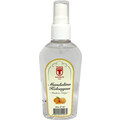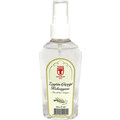11/16/2020

FvSpee
249 Reviews
Translated
Show original

FvSpee
Top Review
31
Colonial products XV: Of figs and tobacco leaves
There are some places in Berlin, believe it or not, that are completely village-like. With duck ponds, village greenery, small fieldstone churches and sometimes a little crooked, three hundred year old single-storey houses with wooden shutters in front of the windows. Such places can be found in the former west (for example in Lübars) and east (in Mahlsdorf), sometimes in the middle of the hustle and bustle of the big city (where a former village was simply swallowed up by the growing big city, but its centre was not demolished, as in Alt-Tempelhof or Alt-Rixdorf), but mostly in the outskirts. One of these village outskirts is the old Wannsee, from the restaurant "Mutter Fourage" to the southwest, towards Kohlhasenbrück and Steinstücken.
About there, but in an even more minimal urban ambience, because directly at the Königstraße, which connects Potsdam with Zehlendorf, is the tailoring and cleaning "Coton", with a T, very nice and competent owners and therefore highly recommended. There on the shelf, at the laundry to be picked up, are some packages of a Turkish barber's product with unclear purpose, possibly for sale in the side business. And four or five boxes of a Kolonyasi, a Turkish Eau de Cologne, of the brand Tariş. The carton is very distinctive and appealing, somewhat retro, the lettering as on the bottle, but avoiding the glass brick look of the latter. I initially accepted this fact ataractically.
However, when I visited the "Öz-Gida Multi-Kulti-Supermarket" (that is the official name) in Schöneberg a good week ago after a long break and I saw the same "Tariş" on the shelf, the 300 ml bottle for almost nothing, I could not resist and bought a bottle of the fragrance "Tütün", i.e. tobacco.
The scent is quickly described. It doesn't smell of tobacco, but of "Tabac Original", the German cult product of Mäurer&Wirtz, which many people find old man-like, but which I vehemently deny and which I wouldn't care if it were true.
The Tariş is the second Turkish Tütün-Kolonyasi I try (after the one from the Eyüp Sabri Tuncer) and both smell almost the same. Namely after Tabac Original. Since I like the other two colognes very much, I like this one too. It is like the one from EST and different from the German original of very short durability and maybe a bit rougher and more angular knitted than the other two.
It can therefore be assumed that this cologne, like the other two, also contains a citric-green herbaceous top note, a floral heart note and a base of moschouli, vanilla-tonka sweetness and, at most, a pinch of tobacco. We can find out about the exact ingredients on the manufacturer's website Tariş, which fortunately for me is not only available in a Turkish version, but also in one in poor English, only vague hints.
On the other hand, a great deal is known about the health-promoting effects of figs on the human organism and the fundamental importance of fig cultivation for the development of world civilization. The reason for this rather surprising thematic focus in the field of perfumery is that the manufacturer of this colognes (which is also offered in 80 ml spray bottles and, very Turkish, in 5-liter plastic canisters), Tariş İncir Birliği, is not a perfumery company at all, but a gigantic agricultural production cooperative of fig farmers in the region of Izmir.
However, on the back pages of the catalogue (on the front pages you will find, among other things, figs, figs, figs and figs, and also figs, for decades also with organic certification, if desired, further fig jam, fig jam and suchlike), as in an appendix, also about ten kinds of cologes and an after shave are advertised quite lovingly. One of them is, not surprisingly, a fig cologne.
An in-depth Internet search reveals that the cooperative produces alcohol on a large scale on its own premises from C-fruits that are too accumulated or damaged to be sold (and even for jam). And from the alcohol (the Kolonyasi has 70%, so it is just enough as a corona virus killer) Kolonyasi is produced in order to complete the value chain and not leave the profit to the capitalists outside. There is always a market for it in Turkey (and in Wannsee and Schöneberg). And it makes itself for the customers of the cooperative, because there are fig friends in all political, ideological and religious contexts, much more harmless in the appendix of such a catalogue than for example Raki.
I gladly leave the rest of the space to the Taris company, because I could never talk about perfumes as beautiful, poetic, and comprehensive of humanity as this cooperative about the fig. At this point I say goodbye and Hoşçakal and give the floor to the comrade lyricist from Tariş İncir Birliği:
Fig is one of the miracles of the Mother Nature. With incomparable flavor of its fruit, it has been rewarding to humanity for thousands of years. It has always been considered the symbol of affluence and plentifulness
In the ancient Greek Civilization, crowns which were made of fig leaf were worn on the heads with the honor as the symbol of fertility. Giving fig leaf as a gift had always been regarded as a way of honoring someone for centuries. Fig had such great importance for human being that it had been mentioned as the Fruit of Heaven in sacred sources
Siddharta Guatama was also said to have formed the basics of Buddhism while he was sitting under a fig tree, which in a way inspired him
Old Testament, which often mentiones about fig, is full of imageries and metaphors inspired by fig. sitting under the shade of a fig tree or tasting the fruit of a fig tree meant the existence of peaceful and tranquil life.
The Jewish people, even currently, eat a fig as a traditional food at the celebration of their Passover Festival, and it is also being mentioned in the Bible as the fruit which is grown in Heaven and as being a sacred fruit, fig is thought to be necessary food of New Year Celebrations.
It is also said that Prophet Mohammed had a saying about fig: If I were given a chance, I would like to take fig tree with me to paradise.
Even tough fig is known to have been grown during Sumerian and ancient Egyptia Era, Anatolian lands is regarded as the homeland of fig The historian Heredotus, in a praise worthy way, mentioned about excellent fig which grew in Anatolia in 484 B.C. 'Ficus Carica', which is the name of fig in science of botanic, was originated from an ancient site ' Caria ' in the Aegean region. Fig, in the next years, spread to Middle East, India ,China and California/USA through Anatolia and got a widespread fame all over the world
About there, but in an even more minimal urban ambience, because directly at the Königstraße, which connects Potsdam with Zehlendorf, is the tailoring and cleaning "Coton", with a T, very nice and competent owners and therefore highly recommended. There on the shelf, at the laundry to be picked up, are some packages of a Turkish barber's product with unclear purpose, possibly for sale in the side business. And four or five boxes of a Kolonyasi, a Turkish Eau de Cologne, of the brand Tariş. The carton is very distinctive and appealing, somewhat retro, the lettering as on the bottle, but avoiding the glass brick look of the latter. I initially accepted this fact ataractically.
However, when I visited the "Öz-Gida Multi-Kulti-Supermarket" (that is the official name) in Schöneberg a good week ago after a long break and I saw the same "Tariş" on the shelf, the 300 ml bottle for almost nothing, I could not resist and bought a bottle of the fragrance "Tütün", i.e. tobacco.
The scent is quickly described. It doesn't smell of tobacco, but of "Tabac Original", the German cult product of Mäurer&Wirtz, which many people find old man-like, but which I vehemently deny and which I wouldn't care if it were true.
The Tariş is the second Turkish Tütün-Kolonyasi I try (after the one from the Eyüp Sabri Tuncer) and both smell almost the same. Namely after Tabac Original. Since I like the other two colognes very much, I like this one too. It is like the one from EST and different from the German original of very short durability and maybe a bit rougher and more angular knitted than the other two.
It can therefore be assumed that this cologne, like the other two, also contains a citric-green herbaceous top note, a floral heart note and a base of moschouli, vanilla-tonka sweetness and, at most, a pinch of tobacco. We can find out about the exact ingredients on the manufacturer's website Tariş, which fortunately for me is not only available in a Turkish version, but also in one in poor English, only vague hints.
On the other hand, a great deal is known about the health-promoting effects of figs on the human organism and the fundamental importance of fig cultivation for the development of world civilization. The reason for this rather surprising thematic focus in the field of perfumery is that the manufacturer of this colognes (which is also offered in 80 ml spray bottles and, very Turkish, in 5-liter plastic canisters), Tariş İncir Birliği, is not a perfumery company at all, but a gigantic agricultural production cooperative of fig farmers in the region of Izmir.
However, on the back pages of the catalogue (on the front pages you will find, among other things, figs, figs, figs and figs, and also figs, for decades also with organic certification, if desired, further fig jam, fig jam and suchlike), as in an appendix, also about ten kinds of cologes and an after shave are advertised quite lovingly. One of them is, not surprisingly, a fig cologne.
An in-depth Internet search reveals that the cooperative produces alcohol on a large scale on its own premises from C-fruits that are too accumulated or damaged to be sold (and even for jam). And from the alcohol (the Kolonyasi has 70%, so it is just enough as a corona virus killer) Kolonyasi is produced in order to complete the value chain and not leave the profit to the capitalists outside. There is always a market for it in Turkey (and in Wannsee and Schöneberg). And it makes itself for the customers of the cooperative, because there are fig friends in all political, ideological and religious contexts, much more harmless in the appendix of such a catalogue than for example Raki.
I gladly leave the rest of the space to the Taris company, because I could never talk about perfumes as beautiful, poetic, and comprehensive of humanity as this cooperative about the fig. At this point I say goodbye and Hoşçakal and give the floor to the comrade lyricist from Tariş İncir Birliği:
Fig is one of the miracles of the Mother Nature. With incomparable flavor of its fruit, it has been rewarding to humanity for thousands of years. It has always been considered the symbol of affluence and plentifulness
In the ancient Greek Civilization, crowns which were made of fig leaf were worn on the heads with the honor as the symbol of fertility. Giving fig leaf as a gift had always been regarded as a way of honoring someone for centuries. Fig had such great importance for human being that it had been mentioned as the Fruit of Heaven in sacred sources
Siddharta Guatama was also said to have formed the basics of Buddhism while he was sitting under a fig tree, which in a way inspired him
Old Testament, which often mentiones about fig, is full of imageries and metaphors inspired by fig. sitting under the shade of a fig tree or tasting the fruit of a fig tree meant the existence of peaceful and tranquil life.
The Jewish people, even currently, eat a fig as a traditional food at the celebration of their Passover Festival, and it is also being mentioned in the Bible as the fruit which is grown in Heaven and as being a sacred fruit, fig is thought to be necessary food of New Year Celebrations.
It is also said that Prophet Mohammed had a saying about fig: If I were given a chance, I would like to take fig tree with me to paradise.
Even tough fig is known to have been grown during Sumerian and ancient Egyptia Era, Anatolian lands is regarded as the homeland of fig The historian Heredotus, in a praise worthy way, mentioned about excellent fig which grew in Anatolia in 484 B.C. 'Ficus Carica', which is the name of fig in science of botanic, was originated from an ancient site ' Caria ' in the Aegean region. Fig, in the next years, spread to Middle East, India ,China and California/USA through Anatolia and got a widespread fame all over the world
21 Comments

